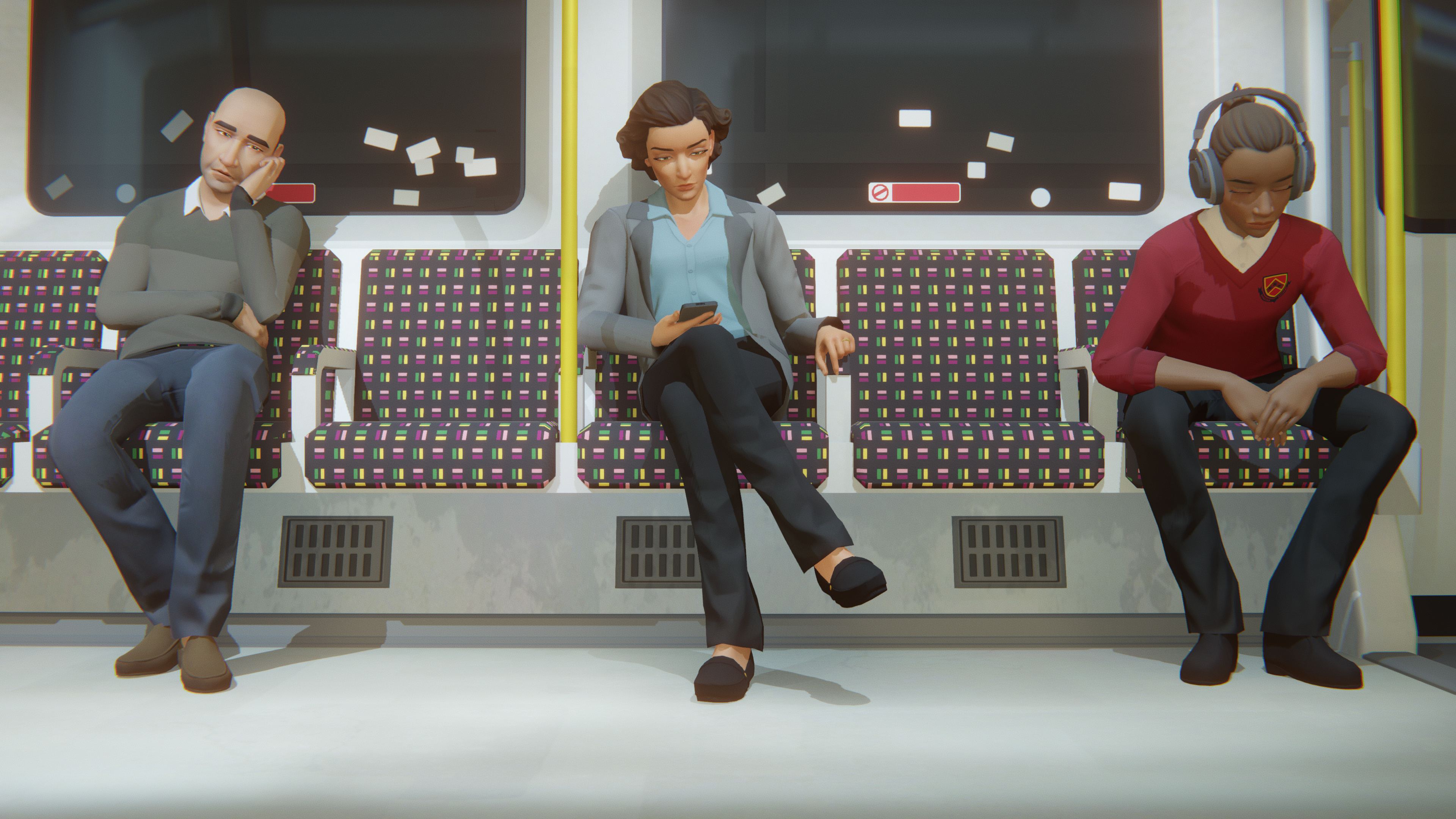Our Verdict
A smart, funny, heartfelt narrative game that tells a killer story, but doesn't do much beyond that.
PC Gamer's got your back
What is it? A magical realism adventure game set in London.
Expect to pay TBC
Developer Variable State
Publisher Annapurna Interactive
Reviewed on RTX 2080 Super, Intel i7-9700K, 16GB RAM
Multiplayer None
Link Official site
Last Stop is a game about extraordinary things happening to ordinary people. Set on the streets of London, it follows four very different characters whose unremarkable lives are suddenly touched by the supernatural. It's an offbeat mix of the mundane and the fantastic, where one minute you're making a cup of tea, and the next you're tumbling through a portal into another dimension. It's also one of the most authentic depictions of Britain I've seen in a videogame—a realistic, understated setting that makes those moments when things turn magical seem extra uncanny.
Developed by Variable State, the studio behind minimalist detective adventure Virginia, Last Stop is a linear, tightly scripted narrative game. You tell the characters what to say in conversations, occasionally move them through heavily choreographed scenes, and not much else. In this sense, as a game, it's very limited in scope. The interaction is minimal and, in most cases, largely meaningless—to the point where I wish I could just sit and enjoy the story without having to lift the controller and pointlessly rotate an analogue stick to make a character scoop cereal out of a bowl with a spoon.

Last Stop has the feel of an anthology, telling three loosely linked stories that eventually intersect in the final chapter. John and Jack's tale is the most fun, like a goofy episode of The Twilight Zone. John is a middle-aged single dad with heart problems, working a civil service job he hates. Jack is an upbeat, fitness-loving videogame developer in his twenties. And for reasons far too convoluted to get into, their brains are swapped. The pair coming to terms with this, trying to live each other's lives, and looking for a way to get their bodies back is the source of some great comedy. But it hits some powerful emotional beats too, particularly where John's health and his daughter are involved.
Meanwhile, schoolgirl Donna and her friends follow a mysterious man to a derelict swimming pool, discover he has inexplicable supernatural powers, and end up holding him hostage after an unfortunate incident involving his head and a lead pipe. This story isn't as compelling. I was never really clear why they were keeping this guy tied up, or what they planned to do with him. But Donna's relationship and family troubles are much more interesting and relatable. Weird magic stuff aside, Last Stop has a knack for telling small, human stories that feel genuine and natural. I was sincerely invested in Donna's unrequited love and her anxiety over her mother's illness.
Last Stop has a knack for telling small, human stories that feel genuine and natural.
Meena is the least ordinary of the gang, being an ex-soldier working for a technology company with a lucrative contract to supply the military with robots. But I love that this aspect of her life is not the main focus of her story—rather, an affair she's having with a doctor makes up the bulk of it. You have to navigate her through a rocky marriage, a son who wishes she was around more, and a young upstart vying for her job. Meena is the best character: she's tough, cynical, egotistical, selfish, and mostly unapologetic about it. It's refreshing (and surprising) playing as a fierce, flawed, and sexually autonomous older woman like this in a videogame.
When the three stories finally collide, Last Stop shifts in tone so sharply you'll wonder if you're playing the same game. The wild final chapter is an enjoyable, unexpected ending for sure, but so outlandish that I couldn't help but feel that it slightly cheapened the nuanced, heartfelt drama leading up to it. Last Stop ultimately fails to strike an elegant balance between the story's more far-fetched elements, and the interesting group of humans at the centre of everything. But despite these reservations, it's a story I've been thinking about a lot since I finished it and the credits rolled. I really love these characters.

I just wish there was more to it. The QTE-style interactions feel clumsily bolted on, and I never got the sense that I was actually controlling the characters—just triggering the next canned animation. There's no tactile feeling to the interactions, whether you're tapping the bumpers to sprint or rotating a stick to stir a mug of tea. The convincingly lived-in, cluttered environments look great, but you never get a chance to explore them to dig out more details about the story or characters. Jack's bedroom is full of stuff I want to read and pick up, but all I can do is walk dutifully to the next scene trigger. This makes the world feel disappointingly static, despite being rich with keenly observed details that will be particularly familiar to anyone who's ever lived in the UK.
Last Stop is one of the least satisfying narrative games I've played in terms of the mechanics underpinning everything. It's really basic stuff, even compared to early Telltale games, where you at least got the chance to snuffle around the environments for extra flavour. But everything else—the engaging plot, the stylish presentation, the natural-sounding voice acting, the snappy direction, the sublime orchestral score—are all superb. So it's a tough one, really. If you're expecting an interactive, malleable narrative that your actions impact on, you'll be disappointed. But if you're happy just to be told an entertaining story in a realistic depiction of contemporary London, with a little spooky magic sprinkled in, there's a lot here to love. Just brace yourself for that ending.
A smart, funny, heartfelt narrative game that tells a killer story, but doesn't do much beyond that.
If it’s set in space, Andy will probably write about it. He loves sci-fi, adventure games, taking screenshots, Twin Peaks, weird sims, Alien: Isolation, and anything with a good story.



